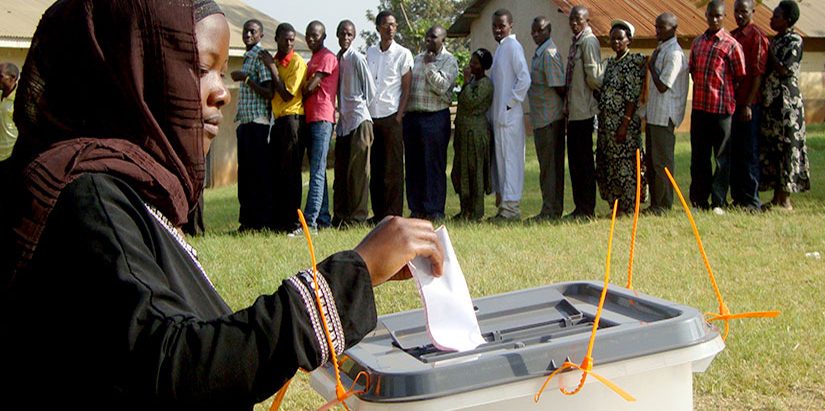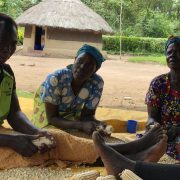Political Empowerment Of Women In Uganda: Contextualising The National Women’s Council (Amendment) Act, 2010

The empowerment of women has been a critical issue worldwide, and Uganda has made significant strides in this direction through legislative efforts. The National Women’s Council (Amendment) Act, 2010, stands as a monumental step towards ensuring gender equality and enhancing women’s roles in local governance. Building upon the National Women’s Council Act of 1993, this amendment introduces essential changes aimed at increasing women’s representation and participation in decision-making processes at the grassroots level. This article delves into the key provisions, benefits, impacts, and challenges associated with the Act, highlighting its significance in the broader context of women’s empowerment in Uganda.
One of the most pivotal aspects of the National Women’s Council (Amendment) Act, 2010, is the formal establishment and empowerment of village women’s councils. These councils are crucial platforms where women can gather, discuss, and advocate for their interests and rights. By institutionalising these councils, the Act ensures that women have structured avenues to participate actively in local governance. This provision is instrumental in giving women a voice in their communities, allowing them to influence decisions that directly affect their lives.
The Act assigns a significant role to the Electoral Commission, mandating it to designate specific periods for voter registration. This is a critical move to enhance women’s participation in the electoral process. By formalizing the registration period, the Act aims to ensure that women are not left out of the democratic process due to logistical or informational barriers. Encouraging women’s participation in elections is a vital step toward achieving a more inclusive and representative democracy, where the needs and perspectives of women are adequately reflected in governance.
Another significant change introduced by the amendment is the replacement of Section 23 of the Principal Act. The new Section 23 empowers the Minister, after consulting with the council, to create regulations that better implement the Act. These regulations include guidelines for the election of council members and prescribe penalties for violations, which can include fines, imprisonment, or disqualification from holding office. This provision ensures that there is a clear framework for enforcing the Act and holding individuals accountable for non-compliance, thereby strengthening the overall governance structure.
The amendment also modifies Section 6 of the Principal Act. It specifies that a village women’s council shall consist of women who reside in the village and are willing to be members. However, it excludes non-citizens from membership and states that the decisions made by a village women’s council are binding on all women in that village. This ensures that the council is composed of local residents who are invested in their community and that their decisions have a definitive impact
The amendment updates Section 7 to include women members of Parliament as part of the district women’s committees. This change aims to enhance the integration and representation of women in
various levels of governance, ensuring that their voices are heard and considered in broader decision-making processes.
A new Section 7(a) that was amended in the Act, allows candidates to be nominated either by political parties or as independent candidates. This provision ensures that women have multiple pathways to participate in elections, whether through party affiliation or as independents, promoting greater inclusivity in the political process.
The Act’s emphasis on expanding the membership of village women’s councils is a direct effort to promote gender balance and inclusivity in local governance structures. With more women participating in these councils, there is a greater integration of women’s perspectives and concerns into decision-making processes. This not only leads to more effective and comprehensive policies and programs but also ensures that the governance structure is reflective of the community’s demographic composition. Increased representation of women in these councils helps to break down long-standing gender barriers and paves the way for more equitable participation in governance at all levels.
Active engagement of women in local councils has a profound impact on community development. Women bring unique insights and experiences to the table, particularly in areas such as healthcare, education, and economic empowerment. Their involvement ensures that the policies and programs
implemented at the local level are more attuned to the needs of the community. By encouraging women to take on leadership roles within these councils, the Act fosters a sense of ownership and responsibility among women for their community’s well-being. This active participation is crucial for addressing pressing community issues effectively and sustainably.
Despite the progressive provisions of the Act, awareness remains a significant challenge. Many women in Uganda are still unaware of their rights and the opportunities available through women’s councils. This lack of awareness has hindered the effective implementation of the Act’s provisions. To address this, concerted efforts are needed to educate women about their roles, responsibilities, and the benefits of active participation in local governance. Grassroots campaigns, community meetings, and partnerships with civil society organizations can play a pivotal role in spreading awareness and empowering women with the knowledge they need to participate fully in the councils.
Socio-cultural barriers pose another significant challenge to the effective implementation of the Act. In many communities, traditional gender roles and norms may discourage women from participating in public life and governance. These cultural attitudes can undermine the efforts to empower women through legislative measures. Addressing these barriers requires a different approach that includes community sensitisation, engagement with traditional leaders, and the promotion of positive role models. By challenging and changing these socio-cultural norms, Uganda can create a more conducive environment for women’s active participation in governance.
The National Women’s Council (Amendment) Act, 2010, represents a significant milestone in Uganda’s journey toward gender equality and women’s empowerment. By strengthening the role of village
women’s councils and ensuring women’s active participation in the electoral process, the Act lays a robust foundation for more inclusive and representative local governance. The benefits of increased representation and community development are substantial, as women’s perspectives and contributions lead to more effective and sustainable policies. However, the challenges of awareness, implementation, socio-cultural barriers, and resource allocation must be addressed to fully realise the Act’s potential.
As Uganda continues to build on this legislative framework, it is imperative to foster a supportive environment where women can thrive as leaders and change-makers. The collaborative efforts of government, civil society, and the community are crucial in this endeavor. By empowering women and ensuring their active participation in governance, Uganda can move closer to achieving a more equitable and prosperous society for all.









